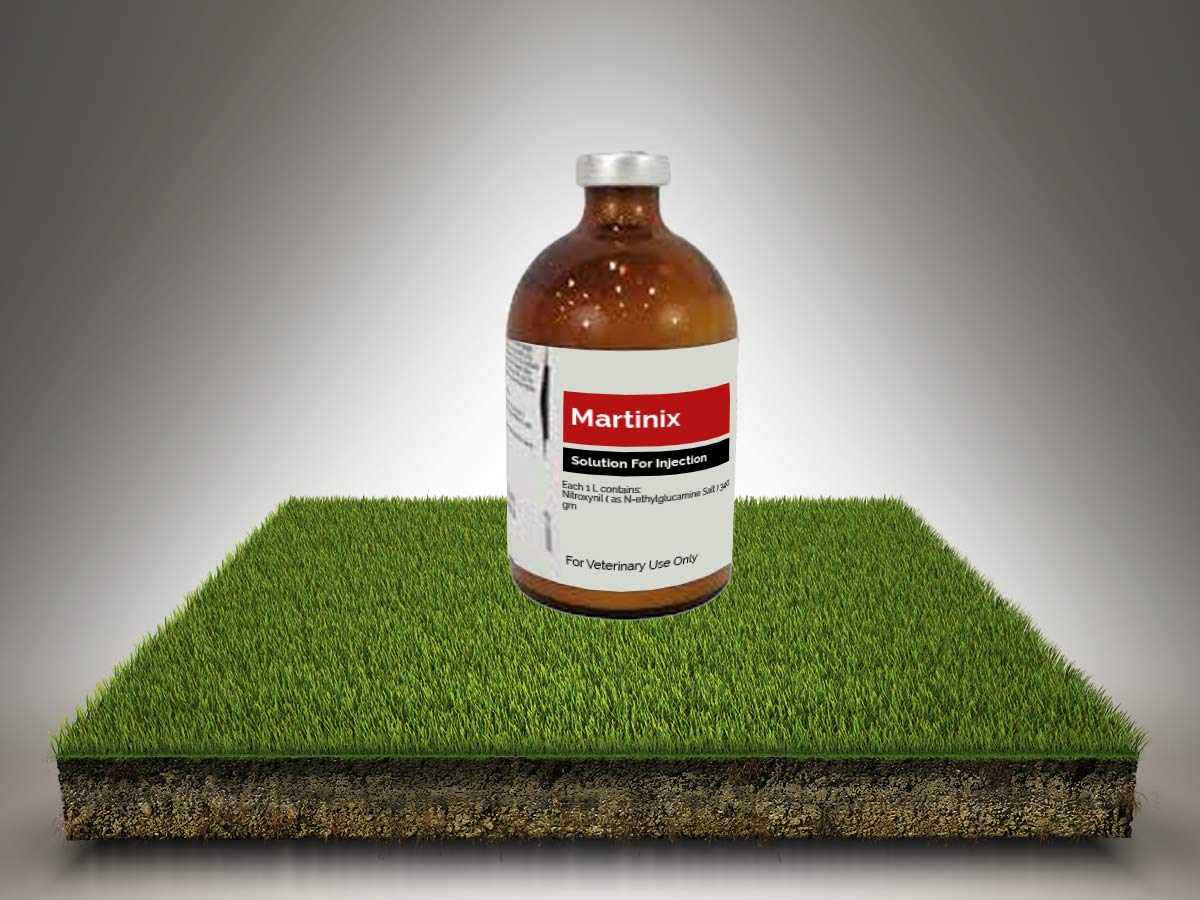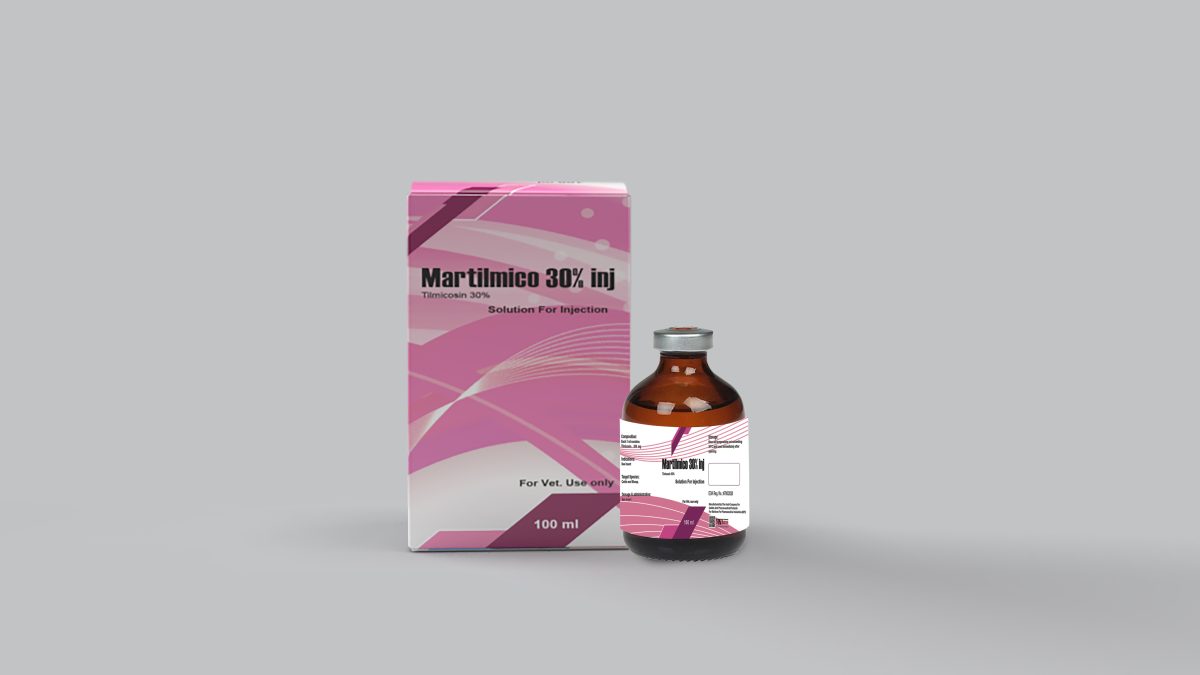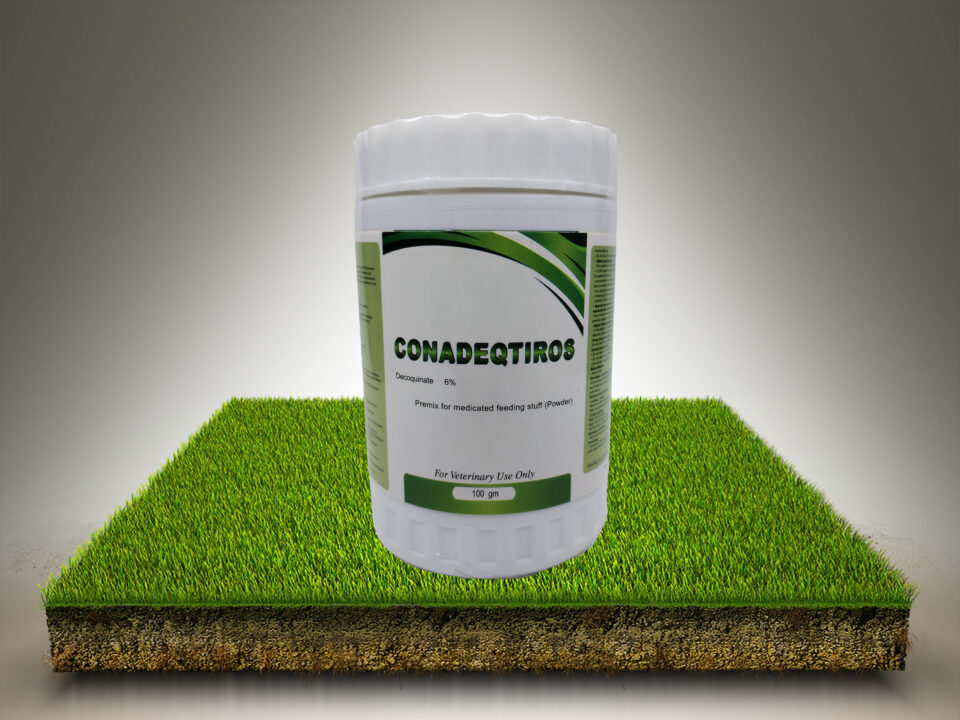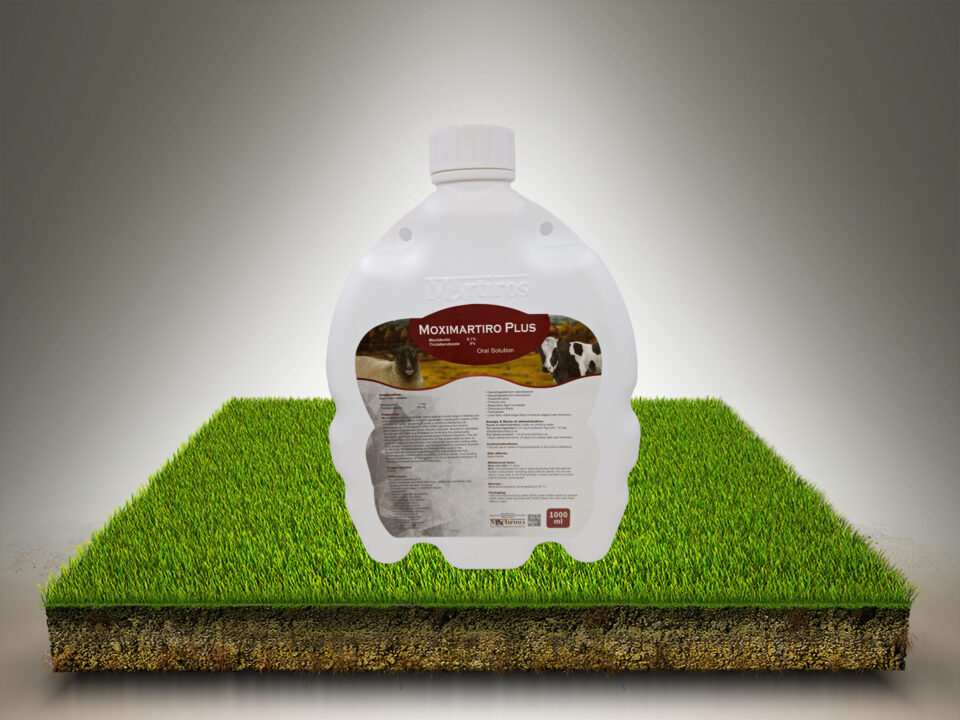
Hatchdor

Martinix
Solution For Injection
For Veterinary Use Only
Composition :
Each ml contains
Tilmicosin 300 mg
Properties:
Tilmicosin is a semi-synthetic antibiotic of the macrolide group, and is believed to affect bacterial protein synthesis. It is bacteriostatic but at high concentrations it may be bactericidal.
Tilmicosin has an in-vitro antibacterial spectrum that is predominantly Gram-positive with activity against certain Gram-negative micro-organisms. The spectrum includes Mannheimia, Pasteurella, Actinobacillus (Haemophilus), Actinomyces (Corynebacterium), Fusobacterium, Dichelobacter, Staphylococcus, and Mycoplasma organisms of bovine, porcine, ovine and avian origin.
Indications:
For Cattle and sheep: Treatment of pneumonia caused by Mannheimia haemolytica, Pasteurella multocida, and other microorganisms sensitive to tilmicosin.
Treatment of ovine mastitis caused by Staphylococcus aureus and Mycoplasma agalactiae.
Treatment of interdigital necrobacillosis in cattle (bovine pododermatitis, foul in the foot) and ovine footrot.
Target Species:
Cattle and Sheep
For active ingredient:
For subcutaneous injection only
Cattle and Sheep : 10 mg tilmicosin per kg body weight
Dose for whole product:
Cattle and Sheep : 1 ml per 30 kg body weight
Warnings & precautions:
Do not administer to lambs weighing less than 15 kg, since there is a real risk of over dosage toxicity. Accurate weighing of lambs is important to avoid over dosage. The use of a 2 ml or smaller syringe will facilitate accurate dosing.
Contra-indications
- Do not administer intravenously.
- Do not administer to pigs.
- Do not administer to horses.
- Do not administer to goats.
- Do not administer to monkeys
Side-Effects:
Occasionally, a soft diffuse swelling may occur at the injection site, but this disappears within five to eight days.
Deaths of cattle have been observed following a single intravenous dose of 5 mg/kg, and following the subcutaneous injection of doses of 150 mg/kg at 72 hour intervals. In pigs, intramuscular injection at 20 mg/kg has caused deaths. Sheep have died following a single intravenous injection of 7.5 mg/kg.
Withdrawal Periods:
Cattle: Meat & offal: 70 days Milk: 36 days
Sheep: Meat & offal: 42 days Milk: 18 days
Storage conditions:
Store in dry dark and place at temperature not exceeding to 30 o.
Packaging:
Vial of 50,100 and 250 ml.




